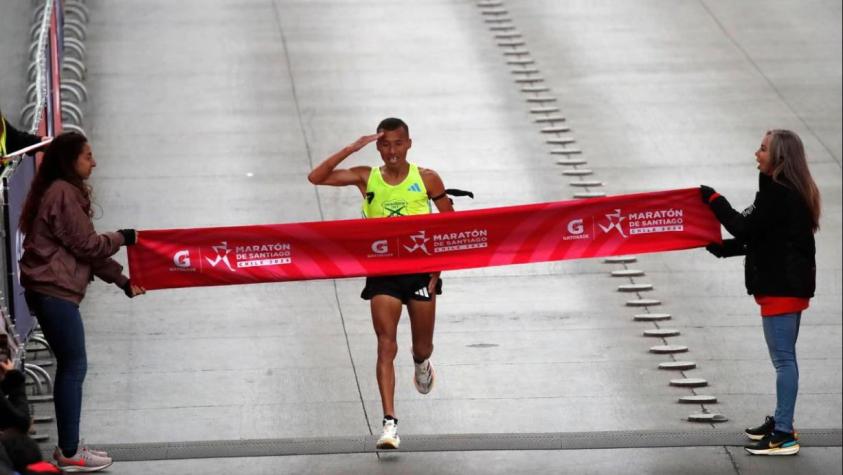When Donald Trump won the 2016 election, for some, it wasn’t just a matter of political disappointment — it was spiritually shattering.
“It completely broke me,” said Tia Levings, author of the forthcoming “A Well-Trained Wife: My Escape from Christian Patriarchy.” “The evangelical embracing of a rapist is not something I will recover from.”
Raised in a Southern Baptist megachurch in Jacksonville, Florida, where religion and politics often dovetailed, Levings remembers her pastors, flanked by Christian and American flags, introducing Republican politicians as an orchestra blared “Battle Hymn of the Republic.”
When her marriage ushered her into fundamentalist Christian Quiverfull churches, which typically reject family planning and promote large families, homeschooling and purity culture, the gap between faith and politics narrowed further. “Family values” and “moral leadership” were synonyms for Republican beliefs.
The breaking point, said Levings, was the election of Trump. “The Christians who raised me in purity culture were endorsing a candidate who was openly speaking of assault,” said Levings, who writes in her book that she suffered abuse and assault in her marriage and her Christian community. She felt Trump’s rise as “a primal betrayal.”
Your tax-deductible gift helps our journalists report the truth and hold Christian leaders and organizations accountable. Give a gift of $30 or more to The Roys Report this month, and you will receive a copy of “Hurt and Healed by the Church” by Ryan George. To donate, click here.
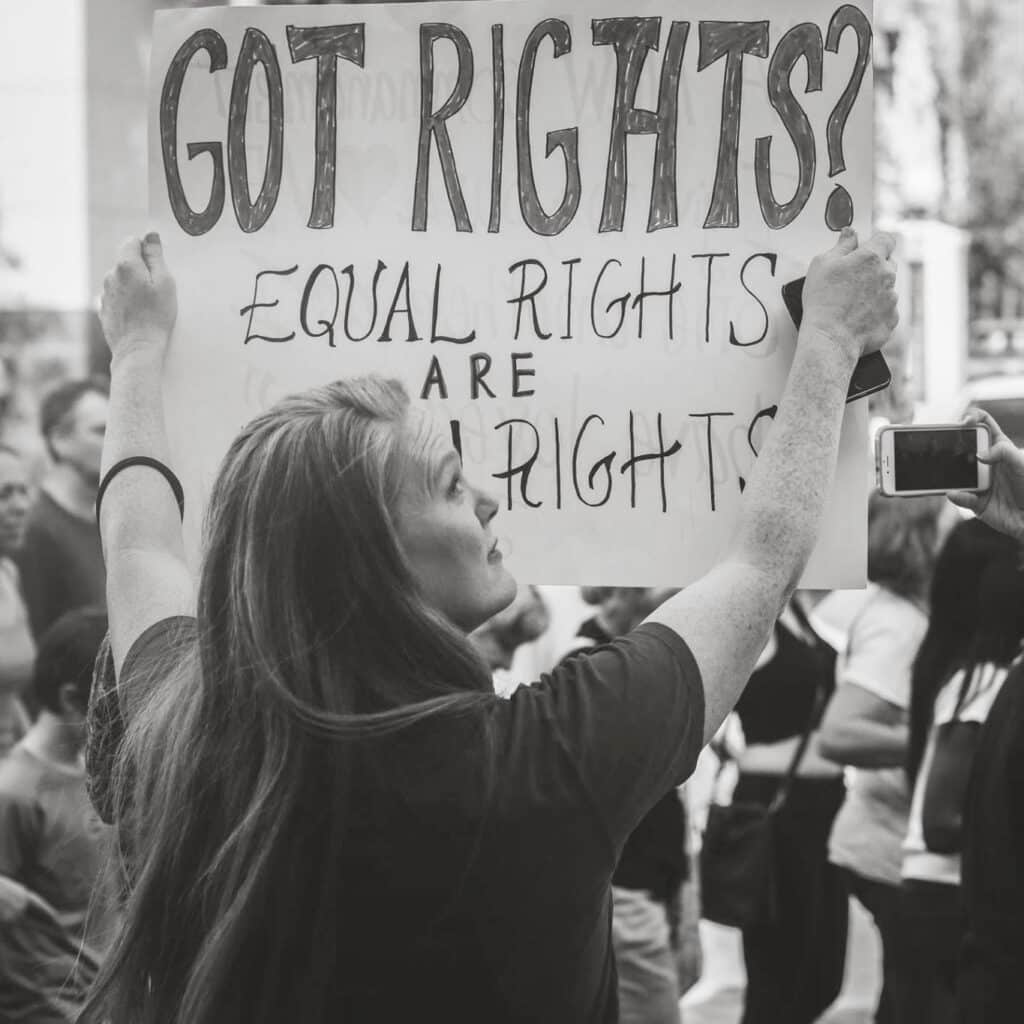
For Americans of all political backgrounds, the mix of religion and politics in our political rhetoric can trigger trauma symptoms, ranging from panic attacks to chronic pain. As politicians wield religion in more obvious and extreme ways and religious leaders grow bolder in their political endorsements, experts say, those symptoms can spike as campaigning surges and voting day gets closer.
“The experience of it is dysregulating,” said Levings, for whom the 2016 election was a disorienting and traumatizing event. “Our bodies recognize that we’re being activated and pushed into trauma responses and that the same abusive techniques are being used on us. Even if our brain wants to deny or shut off, we know when we’re being gaslighted, we know when we’re being manipulated.”
As more therapy clients talk about similar experiences with elections, mental health practitioners are meeting them with resources. Laura Anderson, a psychotherapist specializing in religious trauma, launched a minicourse in 2020 on election-related religious trauma with Brian Peck, a fellow religion trauma therapist. The response, Anderson said, was “unbelievable.”

“People were just in desperation to say, ‘What is happening? I need some sort of support,’” she said.
Now, she’s launched a new version of the course, Religious Trauma and the Elections. The self-led format includes lectures on topics such as strategies for navigating religious trauma triggers and the intersection of religious trauma, race and politics.
Clinicians who specialize in religious trauma say the 2016 election changed the way many of their clients view religion. Abbi Nye, an advocate for church-abused Christians, points to the 2016 election as a moment when Christian voters and leaders bent their religious values to suit their political ones. Nye, who was raised in a high-control faith, said that betrayal was accompanied by communitywide denial, which brought her back to her childhood.
Nye said, referring to Trump, “When he would say or do the most outrageous things, and people would say, ‘This is great!’ I would feel like I was back in this gaslight place. What I grew up with was not OK. How does no one else see that this is not OK? … It messes with your sense of reality.”’
Since then, election time can bring panic attacks, the “uncontrollable urge to weep” or physical illness at seeing Trump signs around her neighborhood — reactions, she said, that “point to trauma, grief and pain.”
In 2013, Cait West left the Christian Patriarchy Movement, a loose network of congregations that shares many values of the Quiverfull movement. “Seeing Christian nationalism now come to play in the election brings up a lot of memories and it triggers some trauma responses in me,” she said. As a child, West was taught dominion theology, which believes Christianity should be the dominant force in American society.
Jan. 6, 2021, she said, was a hard day. “That’s what I was taught to believe in, and I was seeing it come to fruition,” said West, whose book “Rift: A Memoir of Breaking Away From Christian Patriarchy” is due out later this month. “It reminded me of all those leaders from my childhood, who taught me to fear, taught me to be afraid, and taught me that men would be in charge and women would have no voice.”
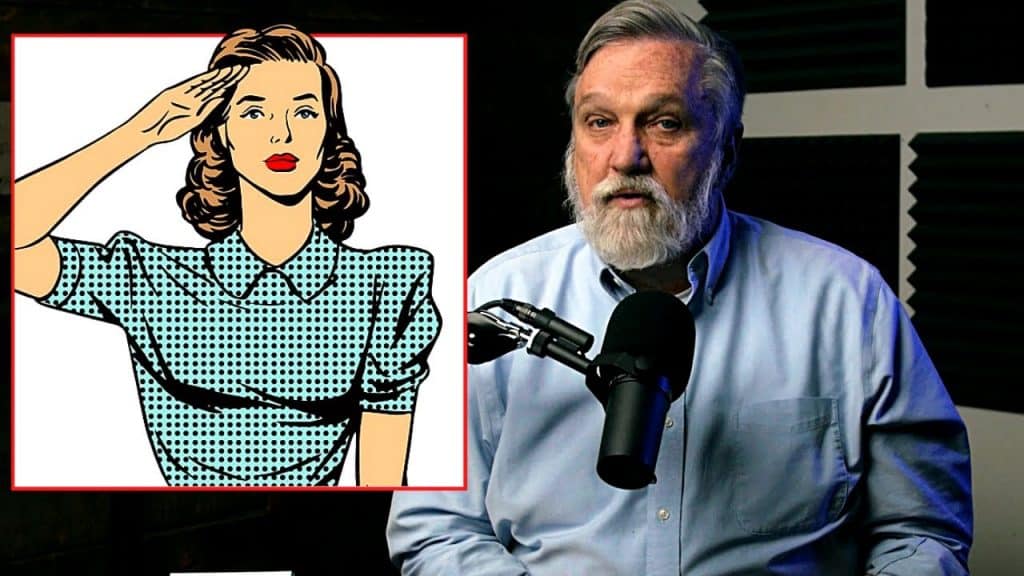
Though the concept of religious trauma is relatively new and understudied, said Dan Miller, a trauma therapist, religious scholar and host of the podcast “Straight White American Jesus,” those articulating their election experiences in terms of religious trauma are “part of a much larger-scale disillusionment with mainstream American religion.”
But those who suffer religious trauma aren’t simply questioning, or deconstructing, their faith, said Anderson. They are naming the physiological, psychological and social trauma symptoms — including autoimmune disorders, gastrointestinal issues, anxiety, depression, post-traumatic stress disorder and social isolation — triggered by politics.
Nor is it only those raised in high-control religion or those who dislike Trump who experience election trauma. The “black and white thinking” often present in political rhetoric, not to mention the inescapable nature of political campaigns during election season, can impact people of all and no faiths.
Miller said that those who identify as Christian nationalists may be experiencing a trauma response to economic uncertainty or losing privilege and said politicians create narratives that feed on that fear as a means of political mobilization. “I think trauma runs deeply through these election cycles,” he said, noting that not all responses to trauma are appropriate.
West said she believes that many evangelicals who vote for Trump “and for things that inhibit equality and human rights” do so “out of a dysregulated nervous system.” In her patriarchal Christian childhood, everything from sermons to her homeschool curriculum reinforced fear of the other, of the unfamiliar and of God’s wrath on America if the nation strayed from God’s law.
“I grew up just being afraid, and my body never felt safe,” said West. “So I think it’s connected because these are the ideas that are shaping our politics right now.”
But, she said, learning about religious trauma and having the language to describe it “can help you learn ways to move through that traumatic response and heal from it.”
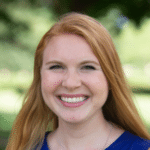 Kathryn Post is a reporter for Religion News Service based in Pittsburgh, Pennsylvania.
Kathryn Post is a reporter for Religion News Service based in Pittsburgh, Pennsylvania.

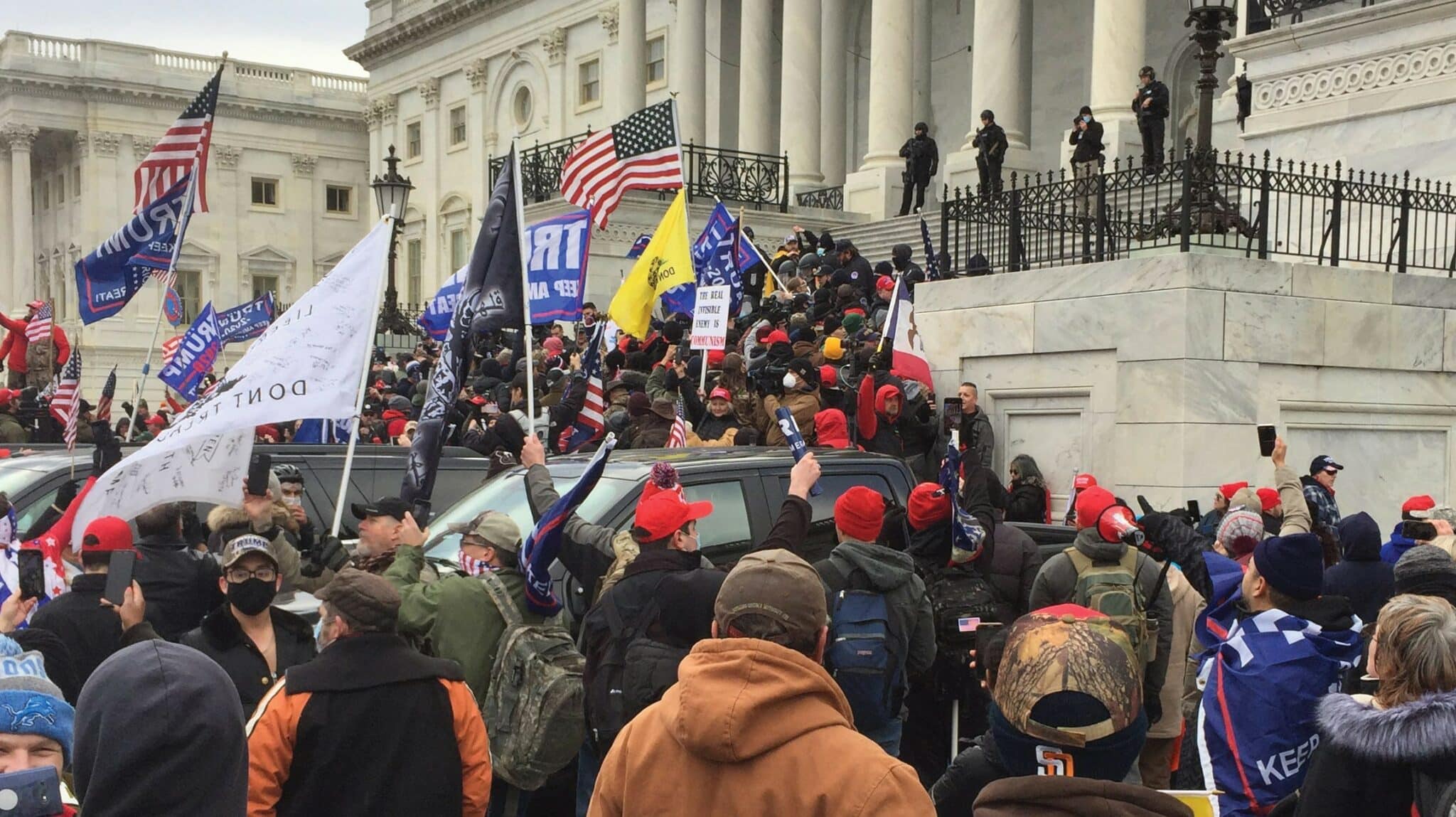

![fotos-desde-disfraces-hasta-consignas-el-lado-b-del-maraton-de-santiago-2024 - Hecho en California con Marcos Gutierrez [fotos]-desde-disfraces-hasta-consignas:-el-“lado-b”-del-maraton-de-santiago-2024](https://www.hechoencalifornia1010.com/wp-content/uploads/2024/04/1408042-fotos-desde-disfraces-hasta-consignas-el-lado-b-del-maraton-de-santiago-2024.png)
